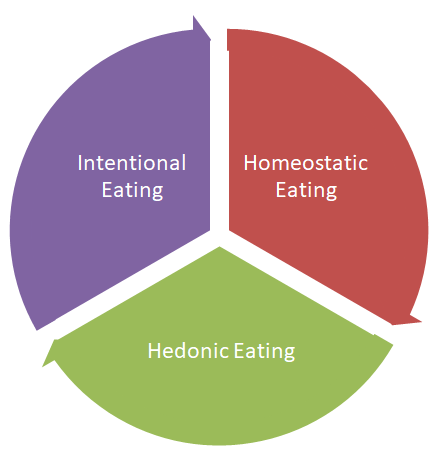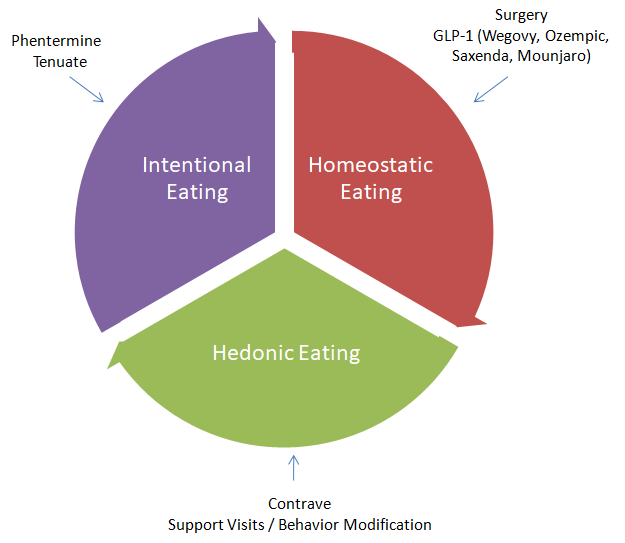
Why do we eat what we eat?
Have you ever thought about why you eat what you eat? Is it simple? Do we choose what we put in our mouths?
If only life was so easy! It’s now thought that there are actually three separate pathways influencing our eating behavior:

- Homeostatic eating: Homeostatic eating is when your body is telling you what it needs to sustain itself – it signals hormonally to let you know how many calories you need to sustain your body weight. Think of this like the body’s weight thermometer or set-point.
- Hedonic eating: Why do we eat chocolate? Because it is good and can help us relax! Who finishes a stressful day at the office and craves a salad? Hedonic eating is influenced by emotions, stress, fatigue, cravings and desires. We don’t just choose to eat – we eat because it brings us pleasure and helps us unwind. This system is influenced by the dopamine signaling portion of the brain which is very involved in addictive behaviors and emotions. Perhaps choosing comfort foods helps us lower stress levels in our brains and feel rewarded.
- Intentional eating: This is the willpower part of the brain – we are choosing to eat certain foods, order certain items off of a menu, etc.
A story I hear often is “I’m good all day, but then I’m starving and have cravings all night. I feel like a failure because I run out of willpower.” What’s really happening, though, is that there is an interplay between these three systems as follows:
- Homeostatic: The person has lost weight. The body recognizes this and produces more hunger hormones, less satisfaction hormones, and lowers the metabolism. The person is hungry at night because the body is trying to restore the lost weight and overcome the calorie deficit.
- Hedonic: The person had a long, tiring day, and is further exhausted from trying to eat less and exercise more. The person feels deprived and wants a reward for all the hard work they’ve done all day.
- Intentional: Trying not to eat while one is hungry can only go on so long. At the end of the day, the willpower is used up and the previous two systems take over.
It is interesting to think about where our different medications and procedures might help a patient lose weight:

- Homeostatic eating: things that would lower our body weight set-point include bariatric surgery and the injectable weight loss medications, as they change the hormones that regulate the body weight.
- Hedonic eating: Contrave is very helpful for this because it works directly on the hedonic, emotional, and dopamine centers of the brain. Getting a good night of sleep is helpful, as well as regular (not excessive) physical activity, stress reducing activities, and support visits with a Registered Dietitian Nutritionist or medical provider.
- Intentional: Phentermine and Tenuate help people with intentional changes to their eating routine – people have more resistance to food and have a buffer; they take a minute to consider their choices instead of immediately eating. People on these medications often tell me they are able to stick with their healthy eating habits more effectively.
So what can we learn from all of this? Losing weight and keeping it off can be challenging because our brains resist changes to our weight and try to protect the heavier body weight. Instead of putting all of our eggs in one basket (such as Intentional –> eat less, exercise more), think about working on all three hunger centers. In doing so, you will have more energy, less hunger, and feel more fulfilled.
Remember, the staff at Clinical Nutrition Center is here to support you while working on all three pathways to help you achieve your goals.




Hi could the eating just be a habit? Thanks Camilla
Sure thing! Habits, environment, genetics, biology, stress, sleep, cravings, other medications… Everything can certainly contribute to the way we eat.